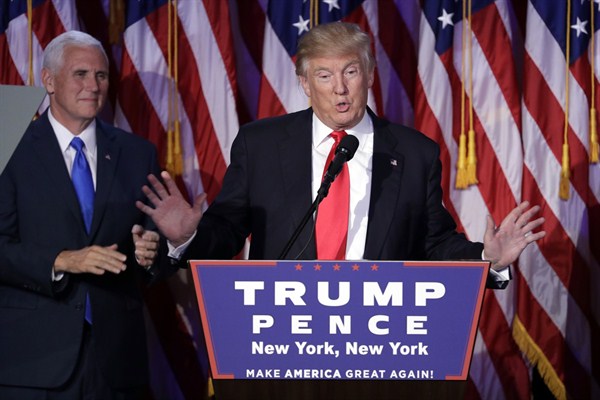Does Donald Trump’s election as president of the United States signal an existential crisis for the liberal internationalist global order? Will it usher in a period of heightened barriers to trade and dialogue, with one-sided ultimatums replacing diplomatic negotiations and compromise? Will the U.S.-backed security architectures in Europe and Asia crumble into the kind of epochal chaos currently on display in the Middle East?
It is easy at times like these to fall prey to panic and despair—to believe, in essence, one’s own campaign rhetoric. But while all of the above scenarios remain possible, for now they are off in the speculative future. After the shock wears off and the sheer incredulity fades, life will go on, in most ways as normal. The immediate outcome of Trump’s victory is not doomsday, but uncertainty.
In and of itself that is not fatal, but it is highly destabilizing. That it comes at a time when the global order is being challenged by disruptive technologies and actors ranging from terrorist groups to revisionist great and middle powers only exacerbates the danger. That it comes after the Brexit referendum, another stunning overturning of the established order, and amid the rise of the nationalist far-right across Europe makes it part of a trend. Uncertainty, with all its accompanying risks, is the new normal.

